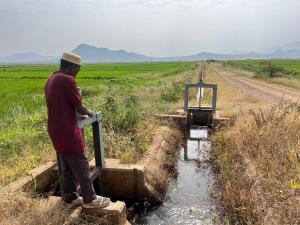Test project Pesticides and Protection Tanzania
testing out building a project
pece_annotation_1473604314
Andreas_RebmannMore studies referencing corpses and their effects on epidemics
http://www.who.int/water_sanitation_health/hygiene/envsan/tn08/en/
Emergency preparedness in developing nations
How EMS deals epidemics
pece_annotation_1480606397
Andreas_RebmannEMS protocol for spit
Usual punishments for abuse by Police
Other stories of similar events
pece_annotation_1474153155
Andreas_RebmannDoctors without Borders has facilities in many countries already established for humanitarian aid. For instance, they had been in Haiti since 1991, so their assistance in 2010 was aided by their already established position there. In that case they upped their projects within the country in response to the disaster.
pece_annotation_1472879627
xiaoxThis article are main to referre to the Haiti's government, United Nations and USAID. Haiti's government is continuing political turmoil, and it influenced the organisation for the rebuilding after the earthquake. The government exploits the donation for children vaccination rates and HIV treatment in post disaster. These actions and auttitudes break the deals between other organisations' supporting. Due to these reasons, U.N. persuade member nations to reduce the supporting. Therefore, the restore after the disaster and cholera are so slow. USAID is United States agency for international development, and it has donated Haiti $1.5 billion since earthquake, but Haiti's people are not really can get the support.
pece_annotation_1474834562
Andreas_RebmannThe personal stories of the event, especially of the one paramedic whose name I didn't catch (Hispanic, Female). The emotional tellings of the events were incrediably visceral. I cannot conceive a scenario worse than what they had to deal with.
pece_annotation_1473742534
xiaoxSmart guardrail is concept design by Yuguo chen and Changlin He, who are from School of Design, Hunan University in China.
pece_annotation_1475457175
Andreas_Rebmann-“…since the era in which demand for foreign labor made immigration a social necessity seem so remote, the immigrant’s body was entirely legitimized through its function as an instrument of production, the performance of which was interrupted by illness or accident.” – Succinctly captures modern views of illness of foreigners.
-Unless his presence constitutes a threat to public order, any foreigner habitually resident in France whose health is such that he requires medical treatment the lack of which could lead to exceptionally serious consequences, and provided that he is effectively unable to receive appropriate treatment in his country of origin, will be granted a temporary residence permit validated ‘for private and family life.’” Ordinance of November 2, 1945; modified on May 11, 1998 to bring into line with the European Convention of Human Rights
-“Should we accept ‘getting our hands dirty’ by agreeing to work with the immigrants’ service of the prefect’s office on the difficult issue of deportations?” asked Charles Candillier, a medical officer in the Seine-Saint-Denis Directorate of Healthy and Social Welfare, in an internal memo. His answer is crystal clear: “Although we recognize the ethical ambiguities of the situation, we did agree, on the grounds that our intervention could only be beneficial in helping to prevent arbitrary explusions.”



the rice irrigation scheme, Pare Valley, Tanzania